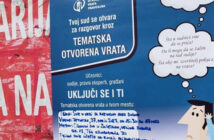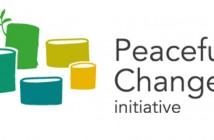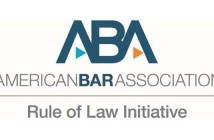OBJECT OF THE ACTION:
1. To identify and document main human rights, freedoms and democracy-related flaws in the Constitution of the Republic of Serbia against international standards and the implementation or lack thereof of adopted solutions.
2. To strengthen evidence-based CSO advocacy efforts leading to constitutional changes in line with CSO priorities agreed upon through a participatory consultation process facilitated by YUCOM and based on YUCOM analyses
3. To build government and political party support for amendments in the Constitution in line with CSO advocacy priorities
THE RESULTS OF THE ACTION:
1. Organization of the round table in Vojvodina, Sandzak and Southern Serbia
2. Organization of the press conference in Belgrade named “Towards the Fifth Anniversary of the Constitution”
3. Publication of a report on constitutional practices, shortcomings and ways forward, Constitution at Bay
4. Opening debates and advocacy about constitutional changes, raising awareness and the knowledge of general public, judiciary and government on the needs to change constitutional provisions related to human rights and democratization and other issues that are set as priorities in the consultation process.
LOCATION OF THE ACTION: Serbia
Download: Constitution at Bay, report on constitutional practices, shortcomings and ways forward
Activities:
Report Constitution at Bay
YUCOM’s team produced report on constitutional practices, shortcomings and ways forward, titled Constitution at Bay.
During the preparation of the report focus was on practical implications of the provisions related to human rights and rule of law. Report contains a list of recommendations which were crystallized after set of meetings held with NGOs, experts and representatives of Government, as well as it was subjected to a peer review by university professors who examined the report and provided YUCOM team with number of valuable comments regarding disputable constitutional provisions. Venice’s Commission opinion was also taken into account.
The idea was to focus on the constitutional provisions that may be the basis and reason for the discrepancies, which hinder and weaken the country’s human rights system. However, during the research it becomes clear, once the analysis of the Constitution began, that it was necessary to dissect the entire material and make changes all throughout so that each section could reflect and support the increased protection of human rights and not only the segments which deal directly with human rights. This approach was chosen to strengthen the representation of the amendments in the future. Another aim of the report is to identify which constitutional provisions may hinder the country’s chances towards European integration.
Round tables
The first round table titled What faults do you find in the Constitution of Serbia – the priorities of civil society was held in June 3rd 2011, at the Belgrade City Hall. High-level stakeholders participated in the panel discussion, including Mr. Sasa Jankovic – Ombudsperson, Mr. Oliver Nikolic – expert in Constitutional Law, Professor Stevan Lilic, Ms. Nevena Petrusic – Commissioner for the protection of equality, Ms. Jadranka Jelincic – executive director at the Fund for the open society and Mr. Milan Antonijevic – director of YUCOM. They presented their views on this issue and suggestions.
Round tables on Constitutional changes titled Towards the fifth anniversary of the Constitution were held in October 2011 in Novi Pazar and Novi Sad. Participants presented issues of possible amendments to the Constitution and some of constitutional provisions criticized by the Venice Commission and legal experts from Serbia. It was discussed about the weaknesses of the Constitution that became apparent during the five-year of its implementation.
Possible amendments to the Constitution were presented and discussed especially about weaknesses of the Constitution that became apparent during the five-year period of its implementation from the standpoint of the position of AP Vojvodina, definition of its autonomy in line with regionalization. Ms. Maja Sedlarevic, Vicepresident of the Assembly strongly supported constitutional changes and defended her standpoints with strong arguments.
The most important conclusion of all discussions was that prolonging the existence of the current Constitution means further threat to accomplished reforms. Changing the Constitution is the crucial step that would set the optimal conditions for further democratic and economic development. During the discussion in Novi Sad it was emphasized that the process of substantial decentralization of powers and creating substantial autonomy in the Autonomous Province of Vojvodina has to be priority if Serbia wanting to continue the European integration process.
Advocacy and opening debates about constitutional changes
YUCOM organized numerous meetings and consultations with representatives of relevant CSOs Belgrade Center for Human Rights, Women in black, Center for Advanced Legal studies, ProConcept, Helsinki Committee for Human Rights, etc., representatives of state bodies (Ministry of Justice, National Assembly, High Judicial Council, State Prosecutors Council, Commercial Court, Office for cooperation with civil society, Agency for European integration and cooperation with CSOs, Commissioner for the protection of equality, Commissioner for Information of Public Importance and Personal Data Protection, etc.), experts and university professors. Meetings were used for opening debate about constitutional changes and developing cooperation regarding the subject.
YUCOM initiated a public debate on constitutional practices, shortcomings of the Constitution and ways forward. The debate helped increasing awareness and knowledge of CSOs, representatives of state bodies, media and general public concerning the issue of constitutional changes.
Media took an important role in approaching these issues to public, but also in awareness rising, especially on the needs to change constitutional provisions related to human rights and democratization. YUCOM marked the fifth anniversary of the Constitution, increased media presence and used this circumstance to promote the initiative among general public. So, constitutional changes were one of the main topics in media. Almost all most influenced printed and electronic media covered the topic. All relevant politicians had a stand on need to change constitutional provisions and in their addressing (in media and parliament) they emphasized that civil society is one of the motors for constitutional change.
Conference
YUCOM organized conference Towards the Fifth Anniversary of the Constitution on November 8th, 2011 in Belgrade and it marked five years since National Assembly of Serbia had ratified the Constitution. The co organizer was Serbian Constitutional Law Association (SCALA) that contributed to raising the level of the professional credibility of the initiative and the debate.
Participants were domestic legal experts, university professors, representatives of national and local authorities and institutions and representatives of NGOs (Ms. Jadranka Jelincic – Executive director of the Fund for an Open Society Serbia, Ms. Maja Sedlarevic – Vice-President of the Assembly of the AP Vojvodina, professor Tanasije Marinkovic – Serbian Constitutional Law Association, professor Stevan Lilic – NGO Lawyers for Democracy, professor Dejan Pavlovic – Faculty of Political Sciences, Janko Odovic – Legal advisor at the Constitutional Court, Vladimir Djeric – Attorney at law, professor Ivana Krstic – Faculty of Law and professor, Dragan Bataveljic – Faculty of Law).
At the conference was concluded that the Constitution has an issue of legitimacy, lack of clear provisions on judicial independence and minority rights. Issue of Vojvodina’s autonomy and the fact that domestic law is placed above international were highlighted.
This conference had the wide media coverage, and the quality and expertise of speakers were on high level as well. It was agreed that YUCOM and SCALA will prepare a publication which should be distributed as a result of the conference and a broad public debate on the topic that YUCOM initiated.





